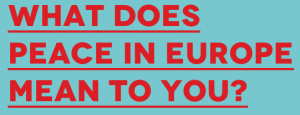
Hurrah! In the last week, the following press release has been issued. It looks like Primary language learning is going to be made statutory. At least that’s the ‘intention’.
On 6 July 2012 the Rt. Hon. Michael Gove MP, Secretary of State for Education, launched a public consultation on the Government’s proposal to make languages a compulsory subject at Key Stage 2 in maintained schools from September 2014. The consultation closed on 28 September 2012.
The vast majority of respondents agreed with the Government’s intention to introduce foreign languages at Key Stage 2. That consultation provided the Government with an opportunity to reflect on and reconsider its initial views in relation to specifying the choice of language at Key Stage 2.
Having carefully considered the responses to the consultation, as well as a range of relevant factors, the Government has confirmed its intention to make the study of a foreign language compulsory at Key Stage 2 and now seeks views on:
- The draft of the Order necessary to make foreign languages a statutory subject at Key Stage 2 from September 2014.
- A new proposal that requires primary schools teach one or more of French, German, Italian, Mandarin, Spanish or a classical language (Latin or Ancient Greek) to pupils at Key Stage 2. Schools would, of course, be free to teach other languages in addition if they wish to do so.
You can access the REPORT and the DOCUMENT as well as a SUMMARY of the consultation.
The report on the initial consultation makes encouraging reading with a high level of support for languages at KS2, and the responses obviously had the desired effect (as far as i’m concerned anyway!)
It seems that rather than dictating that schools focus on one language solely, the proposal allows for learners to experience more than one language (including languages not on the list of 7 as long as they do one of those too). That’s good, as is that fact that 1/5 of people mentioned the KS2 Framework as important – I still believe that it’s key to the success of PLL as it has a broad view of language learning as being far more than “learning a load of words”. There is still concern over KS2/KS3 transition – a thorny issue that we’ve got to get right! – and also concern over the damage that the ‘hiatus’ of the last few years may have done with loss of funding, loss of expert support and loss of impetus.
I’d encourage anyone with an interest in Primary Language Learning to respond to the two questions posed –
1. Do you have any comments on the draft Order attached at Annex 1? (i.e. that language learning should be made statutory at KS2)
2. Do you agree with the Government’s proposal to require primary schools to teach one or more of French, German, Italian, Mandarin, Spanish or a classical language (Latin or Ancient Greek) at Key Stage 2? Please explain the reasons for your answer.
You can download the consultation response form from the website, or fill it on online.
You have until 16th December to respond. However, why not do it NOW so you don’t forget? ;o)




